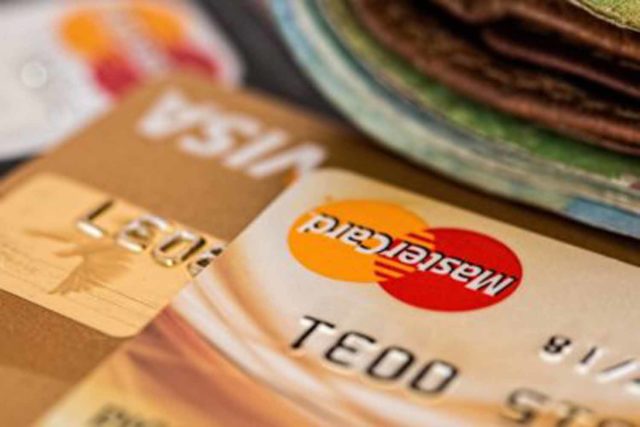What does filing involuntary bankruptcy petitions encompass?
Involuntary bankruptcy is initiated by creditors rather than the debtor to force an insolvent debtor into bankruptcy. This legal tool is generally employed by creditors when they believe a debtor is mismanaging assets, jeopardizing their ability to collect outstanding debts.
In the context of bankruptcy legal services for creditors in Florida, an involuntary bankruptcy petition is fileable under Chapter 7 or 11 of the United States Bankruptcy Code. To initiate such a petition, the debtor must meet specific criteria, and a minimum number of creditors must join the petition.
For example, suppose a debtor in Florida has 12 or more creditors with claims not contingent or subject to a bona fide dispute. In that case, at least three creditors with total unsecured claims of at least $16,750 must join the involuntary petition. Once filed, the debtor has the opportunity to contest the petition. If the court approves the petition, the bankruptcy process proceeds, and the debtor’s assets liquidate or reorganize to satisfy the creditors’ claims.
Need a bankruptcy law advocate? Schedule your consultation today with a top bankruptcy and restructuring attorney.
Which Florida laws and regulations apply to filing involuntary bankruptcy petitions?
In Florida, filing an involuntary bankruptcy petition primarily involves federal law. The Bankruptcy Code, specifically 11 U.S.C. § 303, outlines the requirements for initiating an involuntary bankruptcy case. This section of the Code establishes the eligibility criteria for both the debtor and the creditors and the procedures to follow when filing such a petition.
Additionally, the Federal Rules of Bankruptcy Procedure guide how to navigate the bankruptcy process, including rules on filing and serving the involuntary petition and procedures for contesting the petition and obtaining relief from the automatic stay.
While federal law primarily governs involuntary bankruptcy proceedings, Florida state law still plays a role. For instance, Florida’s exemption laws determine which assets are exempt from liquidation in a Chapter 7 bankruptcy case. Furthermore, the Florida Rules of Civil Procedure may be applicable in instances involving state law claims or the enforcement of judgments obtained by creditors.
How does filing involuntary bankruptcy petitions connect to the bankruptcy process?
Filing an involuntary bankruptcy petition is a unique aspect of the bankruptcy process that allows certain creditors to initiate a bankruptcy case on behalf of an unwilling debtor. This legal tool, primarily governed by 11 U.S.C. § 303, offers creditors a way to protect their interests when they believe a debtor is mismanaging assets or unfairly favoring some creditors.
In the context of creditors, involuntary bankruptcy serves as a last resort to compel a debtor into bankruptcy proceedings when negotiations and other collection efforts have failed. However, recall that involuntary bankruptcy is only available under Chapter 7 or 11 of the Bankruptcy Code. In addition, creditors must meet specific eligibility criteria to initiate an involuntary bankruptcy case, and the debtor has the right to contest the petition.
When a court approves an involuntary bankruptcy petition, the debtor’s assets are subject to liquidation or reorganization to repay creditors, similar to a voluntary bankruptcy filing. However, creditors need to weigh the potential benefits against the risks associated with involuntary bankruptcy, as unsuccessful petitions may result in adverse consequences for the initiating creditors.
When a set of facts is appropriate for bankruptcy services, there are many paths a claimant may take. We are value-based attorneys at Jimerson Birr, which means we look at each action with our clients from the point of view of costs and benefits while reducing liability. Then, based on our client’s objectives, we chart a path to seek appropriate remedies.
To determine whether your unique situation may necessitate litigation or another form of specialized bankruptcy advocacy, please contact our office to set up your initial consultation.
What legal risks do creditors face when filing involuntary bankruptcy petitions?
Creditors may face the following circumstances:
- Costs and fees: Creditors are responsible for the costs associated with filing and litigating an involuntary bankruptcy petition, which may include court fees and attorney fees.
- Burden of proof: Creditors bear the burden of proving that the debtor meets the eligibility requirements under the Bankruptcy Code. A failure to establish the debtor’s insolvency or other qualifying factors can lead to a dismissal of the petition.
- Damages for bad faith filing: If the court determines that the involuntary petition was filed in bad faith or with the intent to harass the debtor, the creditors may be liable for damages, including the debtor’s attorney fees and costs incurred in defending against the petition.
- Risk of dismissal: The court may dismiss the case if the debtor successfully contests the involuntary bankruptcy petition. In some instances, the court may also grant relief to the debtor, such as an injunction against further collection efforts or monetary damages.
- Impact on creditor’s claims: Filing an involuntary bankruptcy petition may cause the initiating creditors’ claims to be subordinated or disallowed if the court determines that the creditors filed the petition in bad faith.
- Negative publicity: Creditors who file an involuntary bankruptcy petition may be subject to negative publicity, which could impact their reputation and future business relationships.
Please contact our office to set up your initial consultation to see what forms of legal protection and advocacy may be available for your unique situation.
How should bankruptcy counsel facilitate filing involuntary bankruptcy petitions?
Counsel should consider the following to protect their clients:
- Thorough investigation: Conduct a comprehensive investigation of the debtor’s financial situation and gather evidence to support the debtor’s insolvency and eligibility. This process can reduce the risk of dismissal due to insufficient grounds.
- Collaboration with other creditors: Coordinate with eligible creditors to file a joint involuntary bankruptcy petition. A joint petition strengthens the case and ensures compliance with having multiple qualifying creditors.
- Avoiding bad faith allegations: Ensure that the involuntary bankruptcy petition is filed for legitimate reasons, such as protecting creditor interests, and not for harassment purposes.
- Compliance with notice requirements: Adhere to all procedural requirements, including proper service of the involuntary bankruptcy petition on the debtor and timely filing of supporting documents.
- Timely response to debtor objections: Prepare for potential objections by the debtor and respond promptly and effectively to any challenges.
Frequently Asked Questions
- Can a debtor convert an involuntary bankruptcy case to a voluntary one?
Yes, a debtor can convert an involuntary bankruptcy case filed under Chapter 11 to a voluntary one with court approval. However, the debtor cannot convert an involuntary Chapter 7 case to a voluntary case without satisfying specific requirements.
- How long does a debtor have to contest an involuntary bankruptcy petition?
The debtor has 21 days after being served with the involuntary bankruptcy petition to file an answer or motion to dismiss, contesting the filing. If the debtor fails to respond within this timeframe, the court may enter an order for relief without further notice.
- What happens if the debtor has already filed for bankruptcy voluntarily?
If the debtor has already filed a voluntary bankruptcy petition, an involuntary petition cannot be filed against them. The automatic stay arising from the voluntary filing will prevent creditors from initiating an involuntary case.
Have more questions about how bankruptcy services could positively impact your business operations and relationships?
Crucially, this overview of filing involuntary bankruptcy petitions does not begin to cover all the laws implicated by this issue or the factors that may compel the application of such laws. Every case is unique, and the laws can produce different outcomes depending on the individual circumstances.
Jimerson Birr attorneys guide our clients to help make informed decisions while ensuring their rights are respected and protected. Our lawyers are highly trained and experienced in the nuances of the law, so they can accurately interpret statutes and case law and holistically prepare individuals or companies for their legal endeavors. Through this intense personal investment and advocacy, our lawyers will help resolve the issue’s complicated legal problems efficiently and effectively.
Having a Jimerson Birr attorney on your side means securing a team of seasoned, multi-dimensional, cross-functional legal professionals. Whether it is a transaction, an operational issue, a regulatory challenge, or a contested legal predicament that may require court intervention, we remain tireless advocates at every step. Being a value-added law firm means putting the client at the forefront of everything we do. We use our experience to help our clients navigate even the most complex problems and come out the other side triumphant.
If you want to understand your case, the merits of your claim or defense, potential monetary awards, or the amount of exposure you face, you should speak with a qualified Jimerson Birr lawyer. Our experienced team of attorneys is here to help. Call Jimerson Birr at (904) 389-0050 or use the contact form to schedule a consultation.

We live by our 7 Superior Service Commitments
- Conferring Client-Defined Value
- Efficient and Cost-Effective
- Accessibility
- Delivering an Experience While Delivering Results
- Meaningful and Enduring Partnership
- Exceptional Communication Based Upon Listening
- Accountability to Goals










